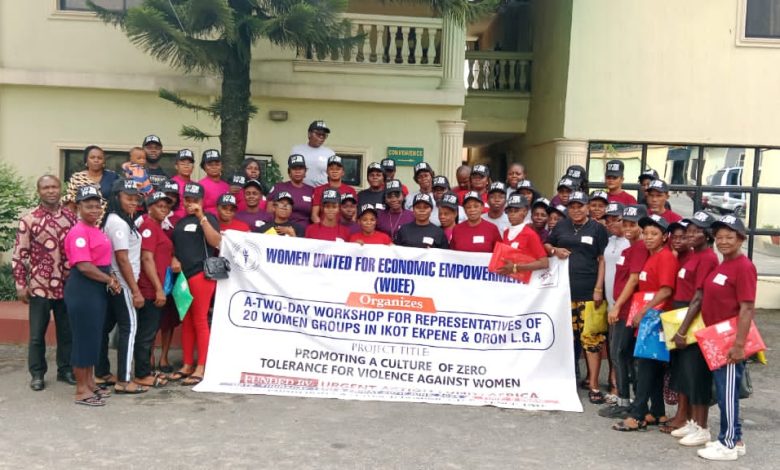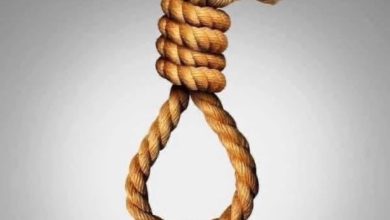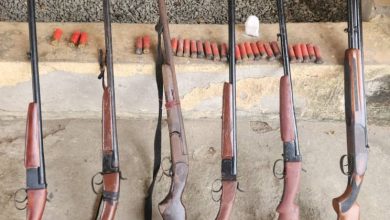A’Ibom Women Advocate For Establishment Of Special Courts To Handle GBV Cases

Akwa Ibom women have advocated for the establishment of special courts and the training of special judges to handle gender-based violence cases in the state.
The advocacy was contained in a 10-point communiqué issued last Thursday at the end of a 2-day workshop organised by Women United for Economic Empowerment (WUEE) at EMMJM Hotels and Suites, Uyo, for representatives of 20 women groups in Ikot Ekpene and Oron local government areas on the project titled “Promoting the Culture of Zero Tolerance for Violence Against Women,” funded by Urgent Action Fund-Africa.
Women comprising mostly survivors of GBV and drawn from 20 women groups in the two local government areas agreed that if the two issues were considered by the state government, there would be quick access to justice, as cases of GBV would be given special treatment and speedy judgement.
While narrating their different ordeals and efforts in accessing justice, they decried delays in getting justice and their frustrations in such situations, calling on the state government to see the need to establish special courts and train special judges for the task of easy access to justice and Medicare.
Other demands as contained in the communiqué are, funding and training of judicial and medical personnel, law enforcement agencies and others on handling GBV cases, including rapid evidence gathering and reporting, provision of rapid response vehicles and buses for sensitization; monthly sensitization on GBV by the Akwa Ibom State Gender-Based Violence Management Committee in all the local government areas using local dramatization as a tool, and also playing the drama on all radio and television stations in the State; appropriate data collation in all localities of perpetrators and survivors for proper referrals and reporting to stop the menace of GBV, establishment of Sexual And Referral Centres, (SARCs) in all local government areas using primary health care centres and pharmacies, as well as provision of adequate equipment and counselors at the existing three SARCs.
Related: Intl. Women’s Day: Seadogs Call For Women Empowerment, Inclusion In Dev. Efforts
The rest are: making available counterparts funding for agencies and civil society organisations to properly handle GBV cases; citizens should be alert and sensitive to GBV cases and learn to be their brother’s keepers, and by so doing, encouraging whistle-blowing; women’s social groups focusing on the economic and social wellbeing of members and being responsible for cases of GBV amongst their members; skill acquisition and empowerment of survivors of GBV; as well as inclusion of GBV in the school curriculum and making it a separate subject outside of sex education.
They appreciated the organisers of the training, WUEE, for putting up the programme, which they said has opened their eyes to issues of GBV, and promised to step down the training they received in different fora in their respective communities.
The executive director of WUEE, Mrs. Iniobong Frank, while welcoming participants to the workshop, recalled that WUEE is a non-governmental organisation that has existed since 2002, working on thematic areas like women, youth, education, health, etc.
Frank, who was represented by the HES, WUEE, Mr. Joshua Nya, said the project is an activity and reporting project aimed at empowering women and letting them know how to prevent GBV to achieve zero tolerance.
Giving an overview of the project, the finance and compliance manager at WUEE, Mrs. Emem Ekong, said the project is to compel a shift in societal attitude towards gender equality and respect, thereby reducing the normalisation of violence against women and children in the Oron and Ikot Ekpene regions; empower survivors to become emboldened to report incidences of GBV in an atmosphere of confidentiality; as well as facilitate institutional behavioural change through activities that will ensure compliance of law enforcement agents responsible for facilitating protection and dispensation of justice, such as the police and the Ministry of Justice in Akwa Ibom State.
Presenting lectures on the “current state of GBV in Akwa Ibom State” and “stemming the tide of GBV in Akwa Ibom State: the role of citizens, government, traditional and faith-based institutions, CSOs, etc.,the secretary, Akwa Ibom State Gender Based Violence Management Committee, and director, Sexual and Gender Based Violence Response Department, a ministry of justice, Mrs Emem Ette Esq, said currently, there are 1,467 cases of GBV in the state, and that out of the 1,467 cases, the committee is investigating 410 cases, made 53 convictions, and 302 cases have been withdrawn.
According to her, citizens play a crucial role in the fight against GBV by fostering a culture of awareness, support, and zero tolerance towards violence, while the government holds a pivotal role in combating GBV through legislation, enforcement, and the provision of effective support services.
She said that while traditional leaders hold significant influence within communities and can play transformative roles in combating GBV, faith-based institutions hold a unique and powerful position in the fight against GBV, as religious leaders can leverage their moral authority to advocate against GBV and promote gender equality, even as civil society organisations are often at the forefront of raising awareness about GBV.
Also, Mr. Abasiodiong Udoakpan, Esq., from the Ministry of Justice, in his presentations on “understanding key provisions in the Akwa Ibom State Violence Against Persons Prohibition (VAPP) Law, and “effective utilisation of the GBV early warning and response system in Akwa Ibom State,” highlighted the various provisions in the VAPP Law and made it known that GBV in the state manifests in different forms, including domestic violence, sexual assault, and human trafficking.
Udoakpan said the importance of an early warning response system in combating GBV lies in its ability to detect and respond proactively.




